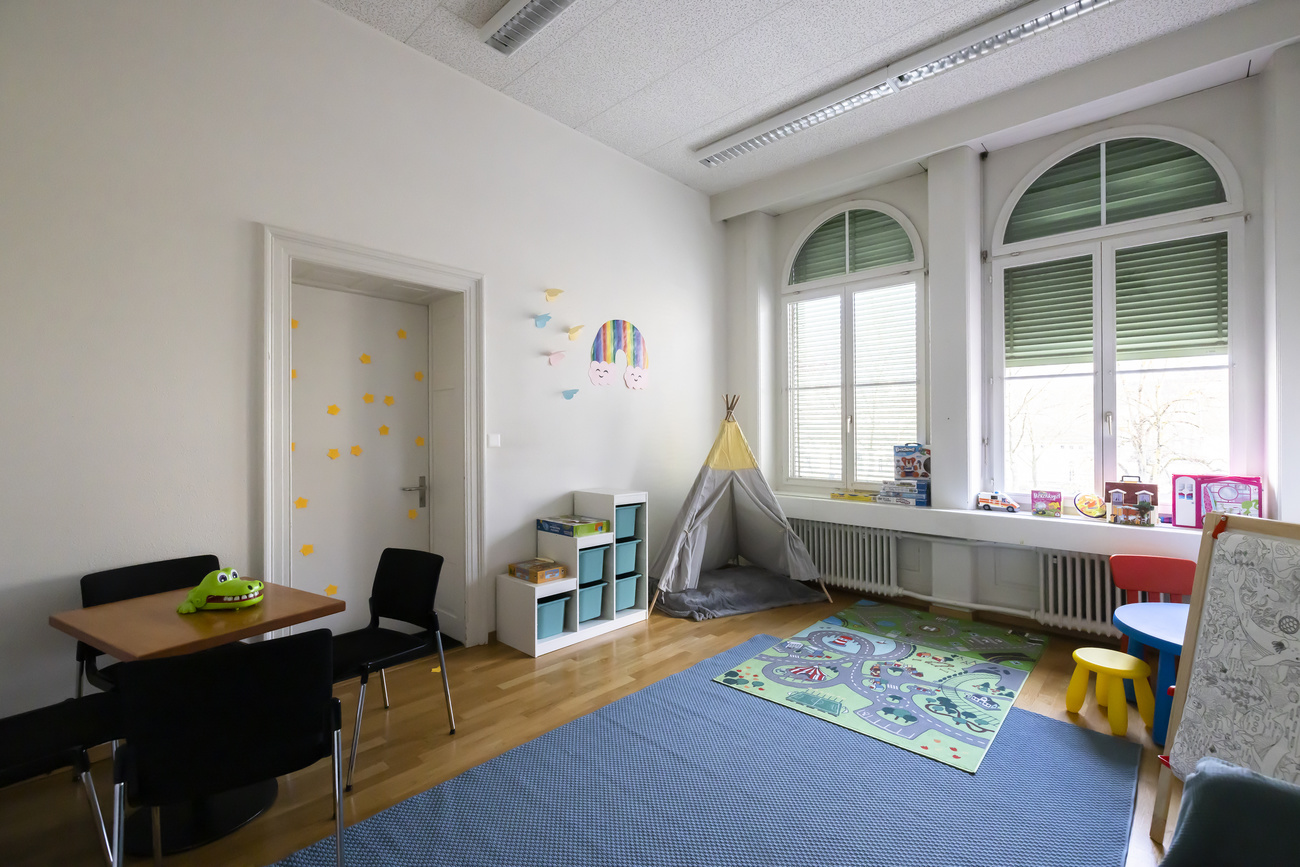
Swiss government plans more accommodation for asylum seekers

The Swiss government has asked parliament to set aside CHF132.9 million ($155 million) to create additional accommodation for asylum seekers and others in need of protection.
On Wednesday, the Federal Council said it has commissioned the Federal Department of Justice and Police (FDJP) to develop a strategy and plan over the coming weeks for the construction of temporary accommodation for asylum seekers.
The goal is to ensure that Switzerland can continue to accommodate all people seeking protection, the government said in a press releaseExternal link.
+ Why asylum in Switzerland remains elusive for Afghan refugees
This is intended to help ease the accommodation crunch facing many cantons following an influx of people seeking protection. This includes some 66,000 people who have fled the war in Ukraine and received special protection status in Switzerland.
Swiss authorities assume that around 30,000 people will apply for asylum this year, which will be difficult to accommodate with the current structures despite support from the army, writes the government in a press release.
The bottleneck is expected to worsen this autumn when the army facilities will no longer be available.
To support additional accommodation, the government has agreed to set aside CHF132 million to create temporary lodging. Parliament still needs to sign off on the plan.
Dublin Accord
This week the Italian government announced it is maintaining a ban on re-admission of refugees from neighbouring countries that it imposed in December. This means Switzerland will not be allowed to send refugees back to Italy in May.
The exact date of the lifting of the admission freeze is unknown, a spokesman for the State Secretariat for Migration (SEM) told the Keystone-SDA news agency in response to a request. Currently, there are about 300 people who cannot be transferred to Italy.
+ Italy defies Dublin Agreement by refusing to accept refugees from neighbouring countries
Under the so-called Dublin Accord, refugees are allowed to be returned to the country where they arrived. Since December Italy has refused to take in refugees, arguing it no longer has the capacity to take in the large number of refugees arriving in the Mediterranean region.

In compliance with the JTI standards
More: SWI swissinfo.ch certified by the Journalism Trust Initiative


























You can find an overview of ongoing debates with our journalists here . Please join us!
If you want to start a conversation about a topic raised in this article or want to report factual errors, email us at english@swissinfo.ch.